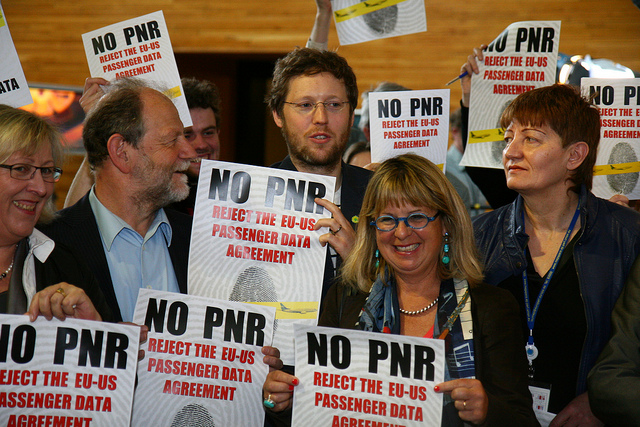US citizen exiled to torture by “no-fly” list seeks asylum in Sweden
A US citizen who was imprisoned and tortured for three months by the US government’s “allies” in Abu Dhabi and Dubai, and who can’t come home even after being released from the UAE because the US government has put him on its “no-fly” list and forbidden any airline from transporting him to the US, has requested political asylum in Sweden.
Yonas Fikre came to the US with his family in 1991, when he was 12 years old, as a refugee from Eritrea, and later was naturalized as a US citizen.
In April 2010, while Fikre was abroad on business and visiting family, FBI agents contacted him to try to recruit him as an informer and agent provacateur in an FBI entrapment “sting” directed at members of a mosque Fikri had attended in Portland, Oregon. Fikre declined to become a snitch and infiltrator for the Feds, but the FBI followed up with implicitly threatening email messages that, “[T]he choice is yours to make. The time to help yourself is now.”
In June 2011, he was arrested in Abu Dhabi by plainclothes UAE police, who held him for three months in a secret prison in Dubai while torturing him, interrogating him about members of the Portland mosque, and telling him that he had been put on the US no-fly list and that he would never be released from their custody and torture or allowed to return to the US unless he “cooperated” with the FBI.
Eventually, he was released from detention and allowed to leave the UAE in September 2011 , but told the US still wouldn’t let him go home. He’s been living in Sweden, where he has other relatives, since then, and has now applied for political asylum on the grounds that he has been effectively exiled from the US by being placed on the US no-fly list (in violation of his human rights under Article 12 of the ICCPR, to which the US and Sweden are both parties) and that his detention and torture in the UAE, presumably at the behest of the US government and/or its agents, gives him reasonable grounds to fear further mistreatment even if he were allowed to return to the US.
This isn’t the first time that the US government has used the no-fly list against US citizens as an as an instrument of exile. Here are just a few of the incidents, among others, that have previously made the news:
- Jaber Ismail: teenager born in California, stranded in Pakistan from April-October 2006, told he would only be allowed to come home if he cooperated with the FBI; allowed to return to the US only after the ACLU took up his case.
- Gulet Mohamed: teenager from near Washington, DC, tortured in Kuwait from December 2010-January 2011; allowed to return home only after the Council on American Islamic Relations filed a lawsuit on his behalf, which was due to be heard the next day but which the US government then argued was moot.
- Jamal Tarhuni and Mustafa Elogbi: aid workers for charities in Libya in January-February 2012; allowed to return to the US only when their US lawyer joined them abroad to accompany them on flights home.
It isn’t just US citizens who have been denied their right to return home by the US no-fly list. As recently noted by the 9th Circuit Court of Appeals, the US no-fly list is used by US-flag airlines on flights elsewhere in the world, and is shared with at least 22 foreign governments. Some of the foreigners prevented from returning home, or from traveling to countries other than the US, as a result of US no-fly orders or “no-board recommendations” from US “advisors” stationed at foreign airports, include:
- Dawood Hepplewhite: UK citizen stranded in Canada and denied boarding on a flight home to the UK in February 2011.
- Mohammed Khan: Canadian citizen stranded in Germany and denied boarding on a flight home to Canada in March 2011.
- Moazzam Begg: UK citizen and former Guantanamo prisoner never charged with any crime in the US, UK, or any other country; denied boarding on a flight to Canada for public speaking engagements in May 2011.
